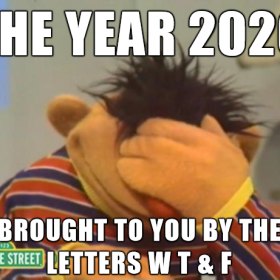Standing up and criticising the corruption of those in power is no mean feat, but how does a country move on when the structures we trust to hold our democracy and lives together are rotten to the core?


I didn’t intend to write a sequel to my 2012 award-winner The Nature of Ash. In my mind it was a stand-alone book. But sometime in the intervening years Ash and Mikey began to nag at me again, demanding I see their story through to a more settled end.
When I wrote The Nature of Ash, it was driven by my concern over our potential loss of sovereignty to giant corporations (and the Western military–industrial complex) if we signed up to the Trans-Pacific Partnership, especially given the build-up of Chinese money in the Pacific, while at the same time snuggling ever closer to our Five Eyes partners, particularly the US. I sensed the risk of a squeeze, New Zealand stuck between two competing super-powers like piggy-in-the-middle. This formed the underlying political setting for the book, playing out in a country collapsing under the weight of climate change and ever-increasing foreign corporate control of essential resources.
This scenario was further fed by the writing of Naomi Klein in her book ‘The Shock Doctrine: The Rise of Disaster Capitalism.’ In the book, Klein argues that neoliberal free market policies (as advocated by the economist Milton Friedman) have risen to prominence in some developed countries because of a deliberate strategy of “shock therapy“. This centres on the exploitation of national crises to push through controversial policies while citizens are too emotionally and physically distracted by disasters or upheavals to mount an effective resistance. The book suggests that some man-made events, such as the Iraq War, were undertaken with the intention of pushing through such unpopular policies in their wake[1].
Ash Arising explores this behaviour further, calling it out as criminal, venal and corrupt. It also looks at how ordinary people can rebel against such actions, using the tools of non-violent resistance voiced by leaders such as Martin Luther King, Jnr. to fuel a citizen-led uprising. But it doesn’t leave it there: I realised it isn’t enough to pull down a corrupt structure if no better democratic structure is in place. So I challenged myself to think this process fully through, and come up with a pathway forwards, where the rights and wellbeing of ordinary people are put back at the centre of democracy’s heart. Ash Arising is the result.
But it’s not only a political book. It’s also a book about two brothers, one with all the gifts and challenges of Down Syndrome, each of them dealing with the loss of their father and betrayal of their mother in their own way. It’s a story about unconditional love and the nature of friends and family. Of resilience against the odds.
In a recent interview on the new book, the reviewer described it as having an ‘emphatically dystopian setting.’ I had to disagree, if dystopian means (according to the Oxford Dictionary online) ‘an imagined state or society in which there is great suffering or injustice, typically one that is totalitarian or post-apocalyptic.’ Why disagree? Because right now, in places all around the world, everything that happens in the book is already happening, and young people like Ash and Mikey are struggling to deal with finding themselves the oppressed meat in the sandwich. In fact, today as I write this, the young people of Palestine come to mind, and Syria, and Yemen, and . . . and . . .
It’s my hope that as people read the book, they realise this; that they pause a moment to look past the rhetoric on the nightly news to the real people suffering on the ground, perhaps thinking there but for the grace of God go I. And maybe also consider how easily a democracy can slip into something waaaay more scary if we aren’t vigilant in holding our elected representatives to account. When I wrote the draft we still had a National-led government, and I could see us slipping down this route. With a change of government, I’m slightly more hopeful; what the Opposition throw around as criticism — that this new government is ‘values driven’ — I see as hugely positive and cause for celebration. We’ll see.
The last thing I’d love readers to consider is how important it is for citizens to take a stand and call out corruption and ill-intent. Our rights are not etched in stone, somehow God-given, but laws that must be actively upheld for the good of all. Only by ensuring the vulnerable in our communities are treated with fairness and respect can we truly call ourselves ‘civilised’. And only by acting from a place of love can we find a way through the mire and come out better and stronger and ensure a decent future for those who come after us.
[1] As described at https://en.wikipedia.org/wiki/The_Shock_Doctrine












